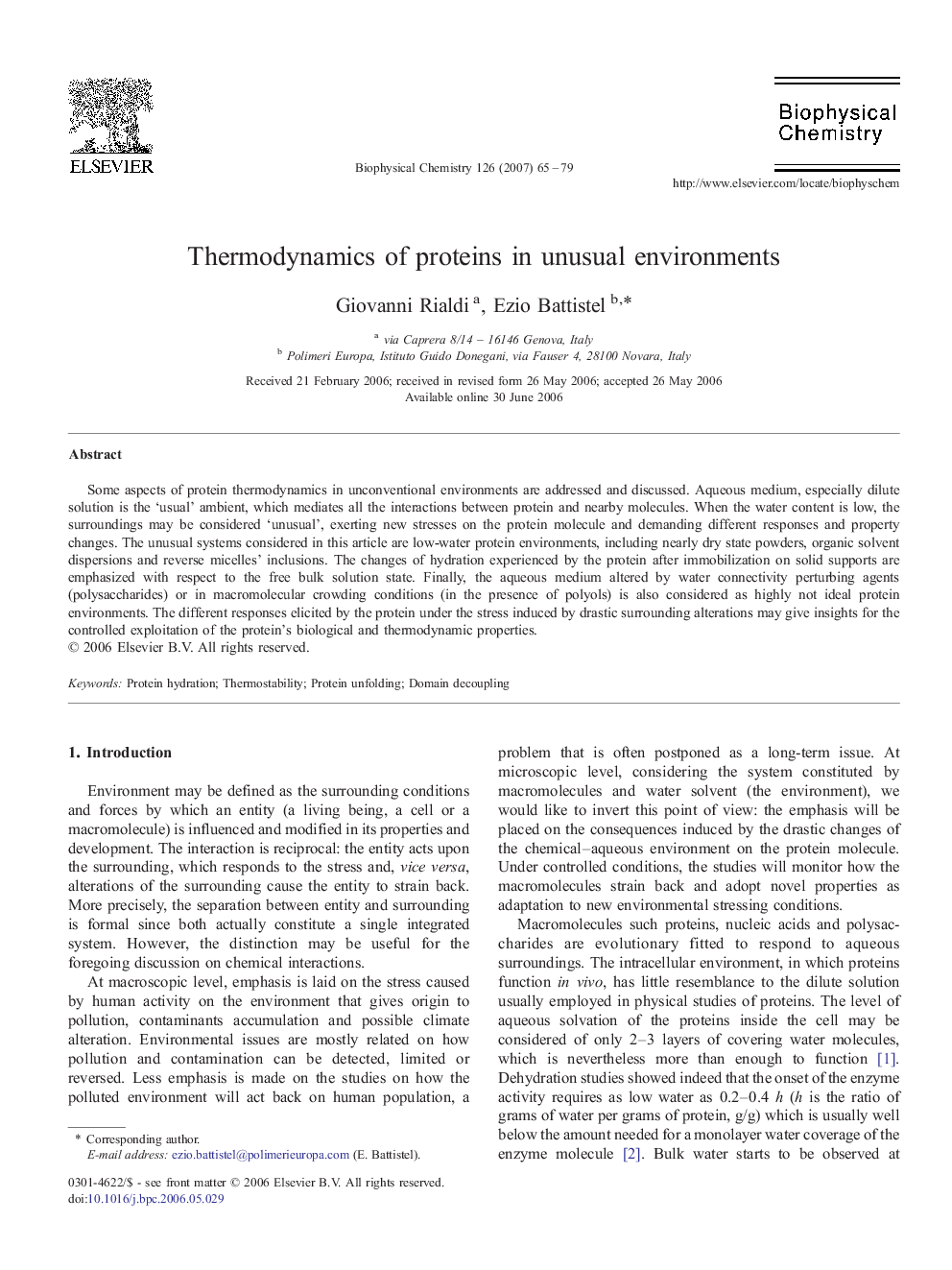| Article ID | Journal | Published Year | Pages | File Type |
|---|---|---|---|---|
| 5372145 | Biophysical Chemistry | 2007 | 15 Pages |
Some aspects of protein thermodynamics in unconventional environments are addressed and discussed. Aqueous medium, especially dilute solution is the 'usual' ambient, which mediates all the interactions between protein and nearby molecules. When the water content is low, the surroundings may be considered 'unusual', exerting new stresses on the protein molecule and demanding different responses and property changes. The unusual systems considered in this article are low-water protein environments, including nearly dry state powders, organic solvent dispersions and reverse micelles' inclusions. The changes of hydration experienced by the protein after immobilization on solid supports are emphasized with respect to the free bulk solution state. Finally, the aqueous medium altered by water connectivity perturbing agents (polysaccharides) or in macromolecular crowding conditions (in the presence of polyols) is also considered as highly not ideal protein environments. The different responses elicited by the protein under the stress induced by drastic surrounding alterations may give insights for the controlled exploitation of the protein's biological and thermodynamic properties.
